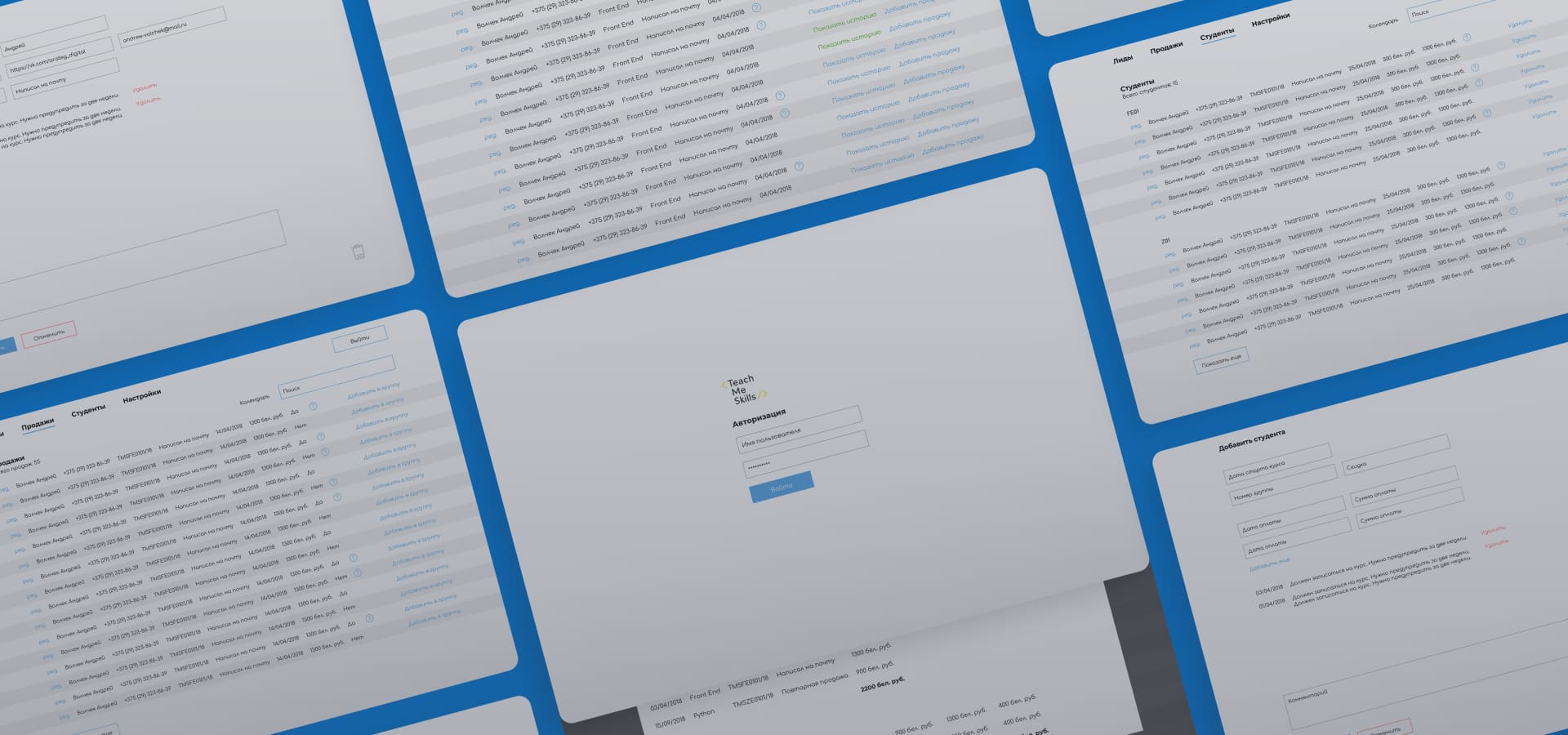
We’d love to work with you
Drop us a line about your idea, project, or challenge.
We’d like to discuss how we can help you.

How we built a custom CRM solution for tracking leads, financial accounting, and marketing management.
8 months, about 2500 hours
2 front-end developers, a back-end developer, a solution architect, 1 UX and 1 UI designers, a project manager, and a QA engineer.
Our specialists worked together with the customer to discuss the project needs and goals. As a result of this stage, we prepared a software requirements document and developed a prototype of the future CRM system.
Since the functionality of the system was expected to be complex, an important task was to create a user-friendly intuitive design. Our UI and UX designers spent 3 weeks on solving this challenge.
The first thing to do was to think over the project architecture. Then, we estimated the scope of work, allocated tasks and went ahead to build a custom CRM. The duration of this stage was 5 months.
Our QA engineer tested the system either during or at the end of CRM development. This helped us deliver a quality solution according to the customer’s needs. In total, this process took 4-6 weeks.
PWA innovative technology was used according to the offline-first principle to make a CRM application work offline when necessary. We also implemented a WebSocket connection with a back-end for updating data in real-time. In case there is no Internet, the app works completely offline and as soon as the Internet appears, changes between front-end and back-end are synchronized.
It was used for providing the smooth performance of the system. We implemented Zero-downtime deployment to elastically scale the project: as it grows, a CRM application doesn’t stop working for even a second.
It was used to easily set up the project scaling for multiple resources across multiple services. What’s more, the service monitors the app functioning and automatically adjusts the capacity to maintain the performance at the desired level. In addition, it enables to pay for the servers only when they are needed (e.g., at peak load) thus reducing costs.
Automatic testing at all stages (development, test, stage, release) won’t allow to accidentally deploy a non-working CRM system. Moreover, the use of CI/CD practice let us build and deploy the application much faster, quickly detect errors, and write code of a higher quality.
As the project was going to be large and complex, we decided to build this type of architecture. This way, we got the ability to easily integrate new functionality as well as scale only those microservices that have an increasing load. Also, if some microservice fails, it doesn’t interrupt the whole system.

CEO, TeachMeSkills
From the first day of cooperation, Arateg demonstrates high professionalism and commitment to the project. They did a great job analyzing our business processes and found the right solution.
We're satisfied with the quality of work and hope on long-term cooperation. Highly recommend Arateg as a reliable IT partner.

Drop us a line about your idea, project, or challenge.
We’d like to discuss how we can help you.